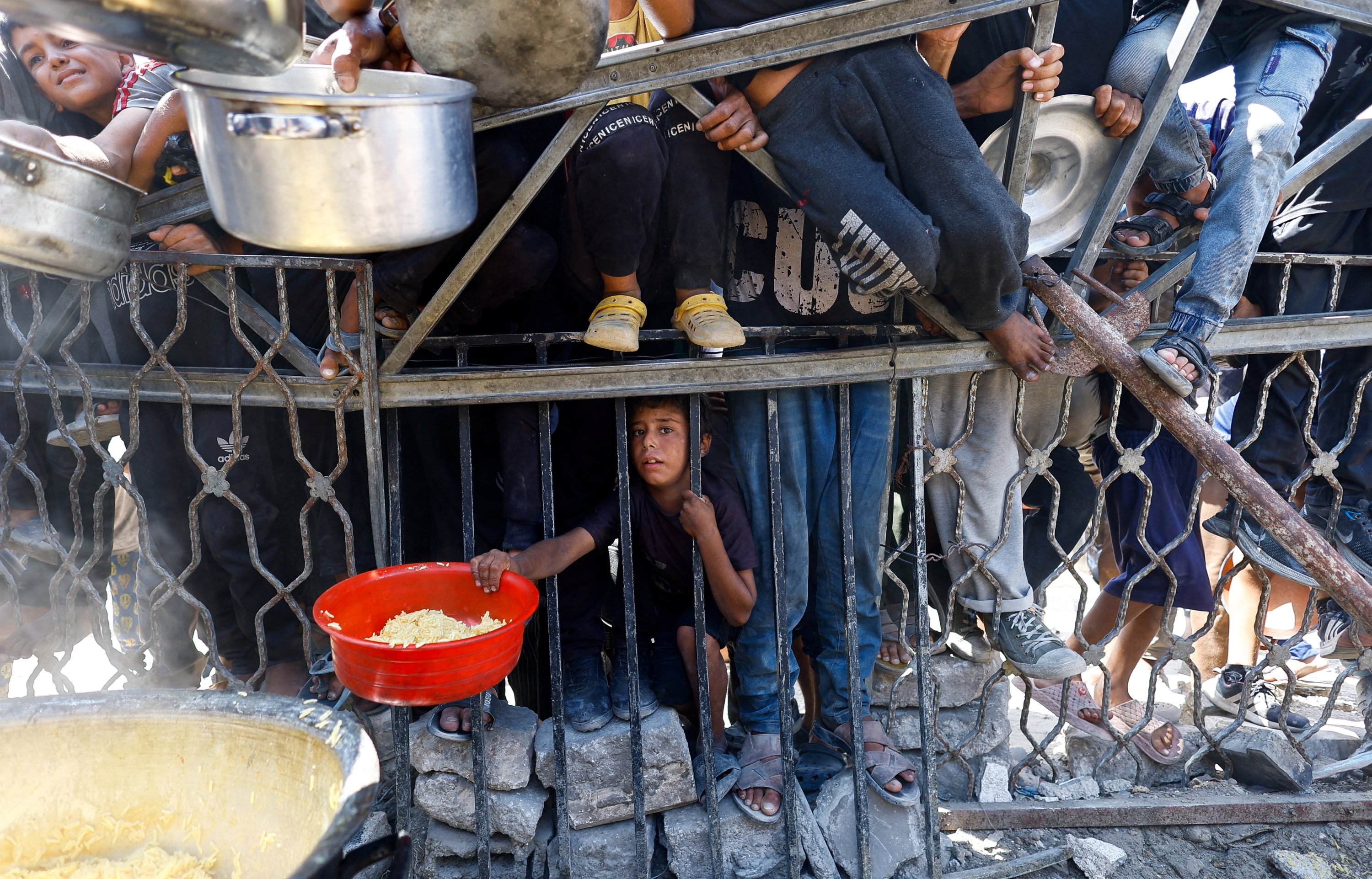Physical Address
Indirizzo: Via Mario Greco 60, Buttigliera Alta, 10090, Torino, Italy
Physical Address
Indirizzo: Via Mario Greco 60, Buttigliera Alta, 10090, Torino, Italy

A few weeks ago, a journalist friend shared his latest column on social media, titled “Brother, I Haven’t Eaten in Three Days.” It captured the haunting collapse of Gaza, where famine is a cruel daily reality. I come from Kashmir, a conflict-infested region, where I have witnessed death and destruction up close and narrowly escaped death on several occasions. Yet, never have I felt so tormented, so utterly helpless, as when I read those lines. His words cut to my very core.
That evening, as I sat down for dinner, I faced a moral dilemma: how could I eat while, at that very moment, hundreds of thousands in Gaza were starving? The question gnawed at my conscience and continues to haunt me still.
The very next day, Aug. 22, 2025, after the congregational prayers, a Palestinian friend I had come to know since last Ramadan tapped me on the shoulder. His face seemed worn with exhaustion as he said, “Brother, I barely slept last night. The U.N. has formally declared famine in Gaza, a man-made famine.”
In response to his sharing the news, I asked, in a voice brittle with helplessness, “Will this declaration end the starvation forced on Gaza?” He shook his head slowly. “No … but it means intervention may now be legally justified.” His words struck me with bitter cynicism. The declaration, like so many before it, seemed less about saving lives than about recording a crisis that had been unfolding for months, even years, under siege and blockade, with no meaningful relief reaching the helpless.
Israel has weaponized starvation. Flour mills, bakeries, fishing boats, wells and agricultural fields have been systematically destroyed. Relief convoys, including U.N.-sanctioned aid, are blocked or bombed. Over half of planned humanitarian missions to northern Gaza have been denied, leaving survivors scrambling for meager supplies.
The U.N.-backed Integrated Food Security Phase Classification (IPC) confirmed Gaza had crossed the strict thresholds of famine: at least 20% of households in extreme food deprivation, over 30% of children acutely malnourished and more than two deaths per 10,000 people per day from starvation-related causes.
By late August 2025, Gaza’s child death toll had surpassed 18,000, part of a total of more than 62,000 Palestinians killed since October. Hunger and desperation have turned aid lines into killing grounds: U.N. and U.N. Office for the Coordination of Humanitarian Affairs (OCHA) records document at least 2,000 people, including children, shot or killed while seeking food in recent months. Malnutrition has claimed over 300 lives, including roughly 115 children, while U.N. partners project 71,000 acute malnutrition cases in children under five by year’s end. Famine (IPC Phase 5) has been confirmed in the Gaza Governorate, with 640,000 people expected to face catastrophic hunger by September and another 1.1 million in emergency levels. Nearly 1 million children, almost half of Gaza’s population, are at risk of immediate and long-term harm.
Gaza’s health collapse is multidimensional. Wasting (acute malnutrition) threatens rapid mortality if untreated; micronutrient deficiencies, iron – anemia, vitamin A – blindness/increased infection risk, iodine – impaired brain development, zinc – higher diarrheal and pneumonia mortality, are rising; infectious outbreaks, including diarrhea, hepatitis A, measles and skin infections, surge amid overcrowding and poor sanitation; maternal malnutrition drives low birthweight, preterm births, and neonatal deaths. World Health Organization (WHO) and UNICEF warn these combined effects will cause immediate excess deaths and a long trail of chronic disease.
Prolonged undernutrition in the first 1,000 days causes largely irreversible stunting, slowed growth, impaired immunity and diminished brain development, with lifelong consequences: reduced school achievement, lower adult earnings and higher risk of metabolic and cardiovascular disease. Based on Integrated Food Security Phase Classification (IPC), UNICEF and WHO data, 150,000-450,000 children in Gaza (15%-45% of the child population) may suffer stunting if the crisis continues, facing a lifetime of weakened immunity, chronic illness and compromised cognitive and economic potential – the deliberate erasure of a generation’s future, written into the bodies of its children.
Months earlier, in Istanbul, I met a distinguished Palestinian professor. I confided, “Never before has the Islamic world been so politically dispossessed, so powerless.” He looked at me and said firmly, “Never before has resistance been so powerful. For the first time, Israel’s crimes are fully exposed. World opinion is shifting. This is a tectonic change.” His words carried weight. And yet, seeing famine and death continue in Gaza, I could not escape the question: What value is world opinion when children starve before our eyes? When hospitals become morgues and journalists are killed to blind the world? Until Israel is stopped, “opinion” seems meaningless.

Gaza today is a living graveyard. Memory resists erasure. Its people bear witness through their suffering. The professor may be right – resistance is visible, and Israel’s crimes are documented – but until the famine ends, until hunger ceases to be weaponized, humanity itself remains on trial.
Even if we feel powerless to intervene, we cannot let the memory of this atrocity fade. The worst crimes committed against the defenseless must not go unpunished. This is the least the conscience of the world can demand: to distinguish evil from justice, to bear witness and to resolve that, though action may elude us, moral clarity cannot. If we fail even here, we risk normalizing cruelty and abandoning the very essence of humanity.
The resolve of all conscientious people – across borders, beliefs and persuasions – must be this: remember, resist through memory and never allow this crime to be erased. At the very least, we must ensure that evil is recognized, recorded and held accountable. The children of Gaza deserve that much more.